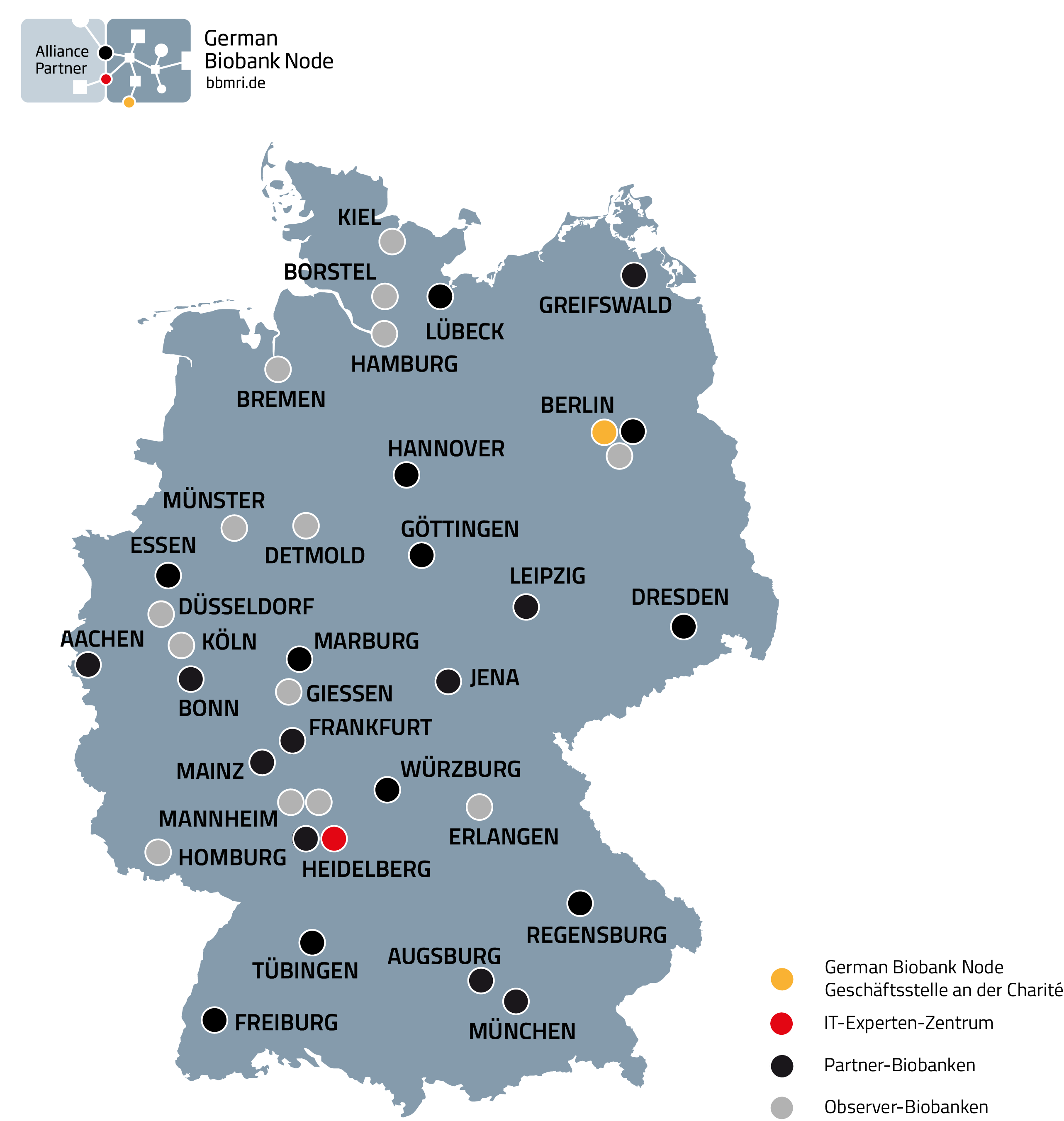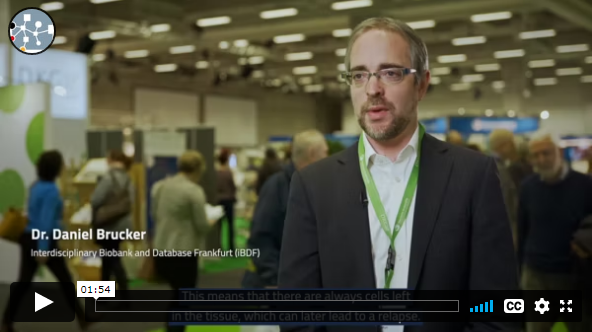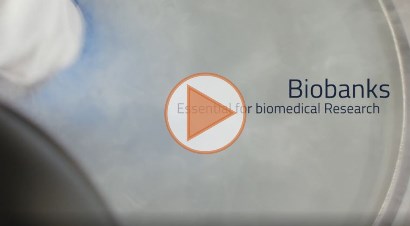iBDF Interdisciplinary Biobank and Database Frankfurt
To advance medical progress and particularly to accelerate development and improvement of diagnostic methods and therapies, extensive medical research is needed. The Interdisciplinary Biobank and Database Frankfurt (iBDF) organizes the quality-assured and privacy-compliant collection and storage of different biomaterials and distributes these to positively evaluated research projects. Therefore, the iBDF represents a key component at the interface between basic, translational and clinical research. The biobank originally focused uniquely on tumor tissues, but has evolved into a campus-wide biomaterial collection to include specimens from all fields including cardiovascular, neurological, psychiatric as well as trauma patients and infectious disease patients.
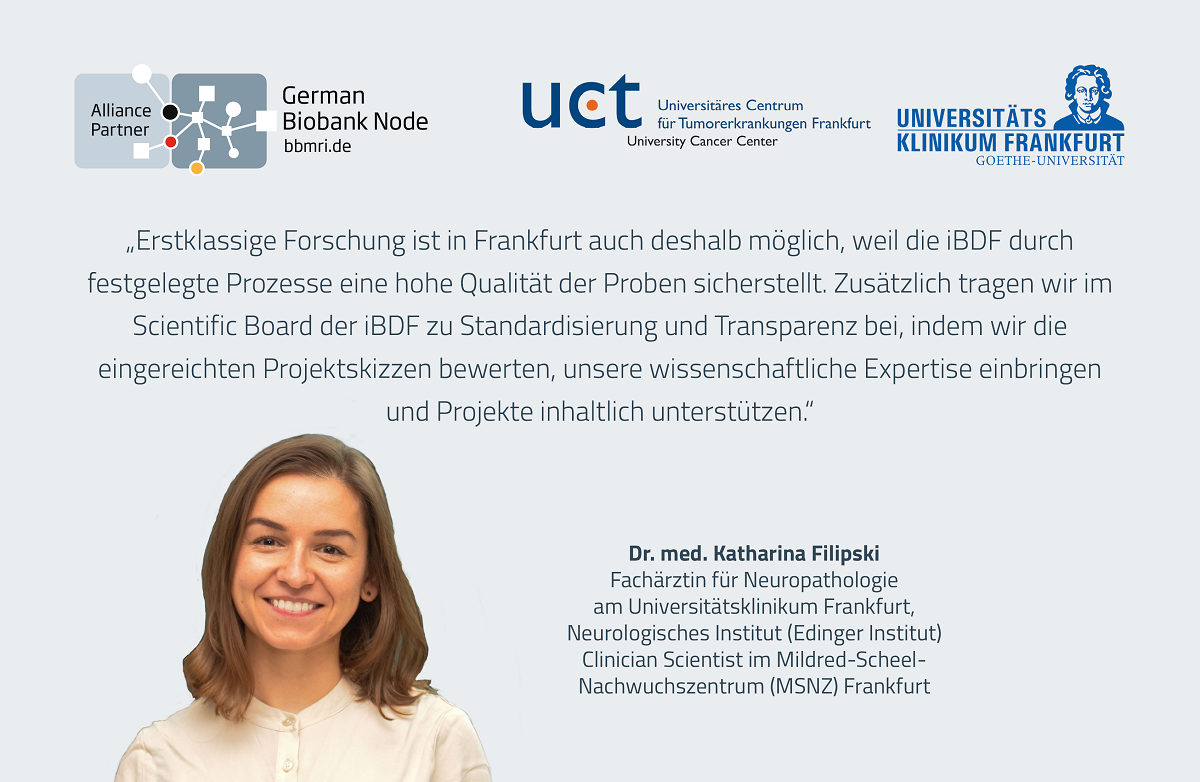
The collected samples are residual materials from tissue, blood, bone marrow, or other body fluids, which are taken during treatment/operation for diagnostic or therapeutic reasons. These materials are analyzed at the pathology institutes and laboratories at the University Hospital Frankfurt as part of the diagnostic routine. With the patient’s informed consent, the biomaterials are stored frozen or chemically fixed in the biobank. Once approved by the scientific board and the local ethical committee, the biomaterials are allocated to scientific projects.
The collection of biomaterials within the iBDF is stored at different locations at the University Hospital, e.g. pathology, neuropathology, hematology, virology, microbiology, psychiatry, child and adolescent psychiatry, cardiology and traumatology.
The management and clinical annotation of biomaterials is organized centrally by the UCT project management team using a powerful IT solution (CentraXX). With this software biomaterial is annotated with clinical data, providing a valuable resource for clinicians and lab-based scientists for the development of new diagnostic and therapeutic approaches.
Since 2016, the iBDF is an active member of the German Biobank Alliance (GBA). This BMBF/DLR sponsored network aims to harmonize biobanking processes and infrastructure in Germany.
Why cooperate with the iBDF?
What are the reasons for cooperating with the iBDF as a member of the German Biobank Alliance (GBA)? Find answers in this film made by the German Biobank Node (GBN) during the German Cancer Congress in 2020:
In a clinical trial that uses innovative treatment methods with genetically modified natural killer cells against glioblastomas (malignant brain tumors), the iBDF is responsible for the logistics, storage and preparation of the study samples.
German Biobank Alliance
Connecting Biobanks, Enabling better Research, Engaging the Community
The German Biobank Node (GBN) is a German biobank network consisting of eleven large university biobank sites. Under the umbrella of GBN, all biobank partners work together in the German Biobank Alliance (GBA) to support biomedical research with high-quality biomaterial samples and data. The Interdisciplinary Biobank and Database Frankfurt (iBDF) is a partner in this alliance.
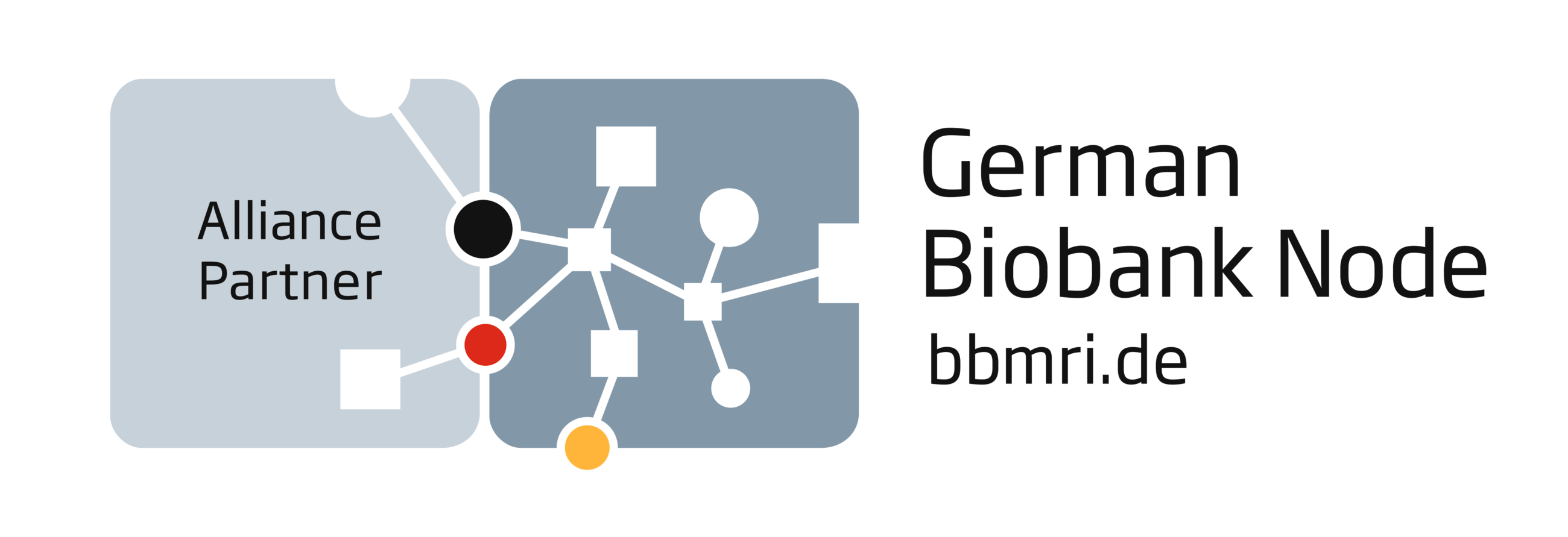
Together, they develop uniform quality standards, establish a networked IT structure and create legal and ethical guidelines for biobanking. In this way, they lay the foundation for the further development and quality assurance of biobanking in Germany and Europe. The Federal Ministry of Education and Research (BMBF) funds the network.
GBN also continues to be a partner in the European biobank network BBMRI-ERIC, which focuses on the networking and exchange of experience of biobanks within Europe.
Further Information
The German Biobank Alliance (GBA) connects 11 German biobanks to european partners and makes these available for biomedical research. Two IT hubs provide the necessary IT tools for data exchange and searches. Since 2017, the GBA is funded by the Bundesministerium für Bildung und Forschung (BMBF).
